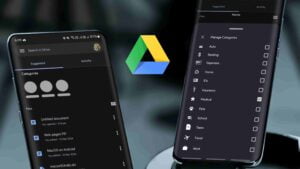Google Chrome’s Incognito mode was designed to let users browse the internet without saving their search and browsing history. But It is an open secret that Google stores everything we do on its web browser including the incognito browsing history. In 2020, a lawsuit was filed over the controversial practice of tracking user activities during Chrome’s Incognito mode. However, according to a proposed class act Settlement a few days ago, Google will delete Incognito browsing history or anonymize Incognito browsing history soon.
LinkedIn to get the Instagram Reel Like feature!
Google Will Delete Incognito Browsing History or Anonymize User Details Without Deleting it
According to a new class Settlement, Google has to be more transparent and accountable for its actions regarding collecting user data while they are in Incognito mode. The lawsuit filed in 2020 stressed how Google has continued collecting user data even when they are in Incognito mode. Google almost had to pay $5 billion. Somehow, it dodged such a huge fine for the time being.
Google already displays a disclosure on the new tab on Incognito mode at the beginning of every Incognito session. The disclosure does not explicitly inform users about the data collection in Incognito mode. However, with this settlement, Google agrees to rewrite its disclosures to explicitly inform users that Google collects user private/Incognito browsing data. Google has agreed to display the rewritten disclosures on the Incognito splash screen and in their Privacy Policy.
This ensures transparency going forward. The plaintiffs also demanded accountability for Google’s past conduct. Upon approval of this Settlement, Google must delete billions of private data records that reflect class members’ private browsing activities. This includes the Incognito browsing data of class members during the class period. i.e. Data collected from December 2023 and earlier. As of now, reportedly, there are about 50 class members. The number is expected to grow as anyone can file claims regarding the damage in California state court. Nonetheless, this Settlement could apply to 136 million Google users.
Google Must Let Users Block Third-Party Cookies in Incognito Mode
Going forward, Google must let Incognito mode users block third-party cookies by default for the next five years. This is a must, given that Google uses third-party cookies to track user data in Incognito mode on non-Google websites. Blocking third-party cookies by default limits Google from collecting private browsing data of users while ensuring additional privacy for Incognito users.

Google must delete the private browsing data of users that Plaintiffs uncovered. Google was sanctioned twice for concealing the data collection but somehow got away without paying it. As a result, Google will delete Incognito browsing history and no longer collect or track users’ choice to browse privately.
Will Google Stop Collecting Incognito Data from Users?
Based on the official statement from Plaintiffs, It is clear that Google won’t stop collecting user data even in Incognito mode. It will instead make it clear that the private browsing data will be collected. However, Google has to delete the data collected during the class Settlement period or make the collected private browsing data anonymous. In the future, if Google wants to collect user browsing habits in Incognito mode, it should make it explicitly clear in its Privacy Policy and on the Incognito splash screen.
Google has already started disclosing the limits of its Incognito browsing services. However, considering the open-endedness of the statement, the tech giant might not be off the hook just yet.







